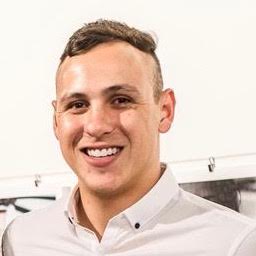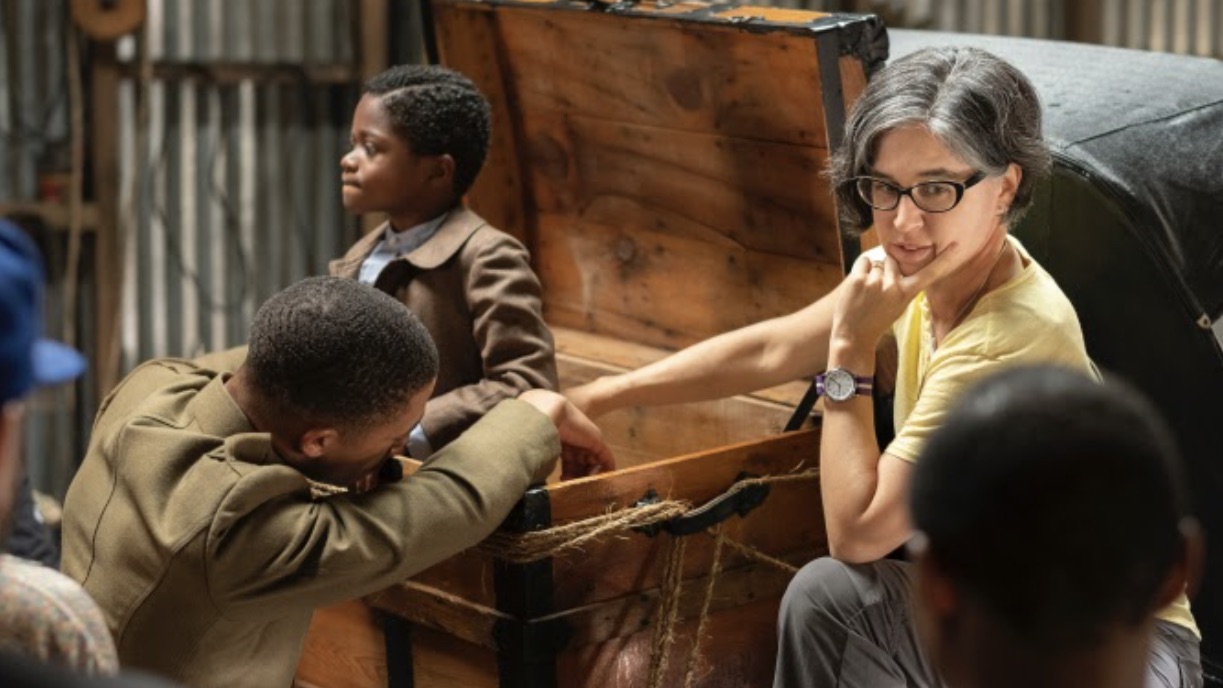It’s no secret that the silver screen has yielded much of the creative talent responsible for serialized television’s golden age. Exhibit A: Nicole Kassell '02 (MFA, Kanbar Institute, Graduate Film), who last helmed a feature film with 2011’s A Little Bit of Heaven, and has instead been busy lending her vision to television and streaming series the last decade. Kassell’s recent work has occurred alongside series creator Damon Lindelof '95 (BFA, Kanbar Institute, Film & TV) on season two episodes of The Leftovers, and more notably on the pilot—and two subsequent episodes—of Watchmen, the superhero drama that earned a series-leading 26 Emmy* nominations.
Kassell’s direction of the Watchmen pilot, “It’s Summer and We’re Running Out of Ice,” delivered her an Emmy nomination for Outstanding Directing For a Limited Series, and also earned her a DGA win earlier this year. When we spoke with Kassell back in March, Watchmen’s themes— straddling everything from moralism to American corruption to police violence—were zeitgeisty; now they seem to completely envelop the nation. Below she breaks down how her creative roles have differed across television work, her pathway back to longer form storytelling, and her time in NYU Tisch’s Grad Film department.
*The 72nd Primetime Emmys take place Sunday, September 20.
Before we get into Watchmen and other recent work, can you tell me about anything you have going on at the moment?
Nicole Kassell: I’m in development on a handful of different projects. The Last of the Mohicans for a television series, and I’m in development on a couple other different series and features.
You’ve now worked with series creator Damon Lindelof on both The Leftovers and Watchmen. Coming in as a director, how have you arrived at a shared vision in terms of individual episodes, but also for the broader atmosphere of the series?
NK: I think the difference you’re talking about is between directing a pilot and coming in as a guest director on an episode. Directing a pilot, whether Claws or Watchmen, is much more akin to doing a feature film, whereas as the director you’re [deciding] the look of the show from casting. [It’s the] same as directing a big studio movie in that it’s the visual palette and template for the rest of the series. Hire the cast, crew, costume, hair, makeup—all of that stuff that you would do on a feature is what you do on a pilot.
When you come in as an episode director, you’re landing into many predetermined decisions. I always looked at it as each episode was like getting to direct a play: This episode is mine to put my vision on and to pull the performances out and to give my perspective for the writers to have fresh eyes. You’re their first audience member.
I loved doing The Leftovers with Damon because they were very hands off with their guest directors. I got to work on incredible shows with incredible writers and cast and crews. It is an extraordinary opportunity to get to direct great material over and over again.
What needs to attract you to a project so that you feel properly invested?
NK: I have three big boxes I need to check: I need to connect to it personally, politically, and visually. Ideally I have a really strong personal connection to why I want this story told. I read the pilot [for Watchmen] that Damon had written before reading the graphic novel. But he was taking on race in America… let me think about how to say this. I’m from Charlottesville, Virginia. The way in which things have shifted since 2016 has all been kind of storming inside of me. When I read the pilot I was like, “Here is where I can put all that energy and say something.”
Politically, whether it’s The Woodsman, or Claws, or The Watchmen, doing work that leaves people thinking after the viewing experience is really important to me. Claws is a totally different tone, but here we were casting five women, four over the age of forty, two caucasian and the rest are of color, and saying, “Hey, this is a group of friends.” Normalizing the world that I see in my everyday life. You see Niecy Nash (as Desna Simms) in a relationship with a younger white man, and that’s not the story, that’s just a fact.
And then visually I need to feel inspired that I could do something special cinematically. That’s absolutely essential. What will my eyes be seeing for the year or years that I take on this project? I really strive for every frame I set to be frame-worthy on a wall.
Like plenty of today's episodic creators, your origin as a director is in feature films. How strong is the itch to get back to that longer form?
NK: It’s high, and I’m happily scratching it. It’s high because as a lover of the art form, I still love features. Story comes first, so I’m not precious about the medium. There was nothing that could take me away from Watchmen; I knew that I wasn’t going to find another script that came close to those nine episodes. I wanted to give those years of my life to that. But I’m eager to do a feature soon. That is what I was raised on and I love the art form of it. It’s the equivalent of a very tight short story versus a novel and as a viewer I love that form.
While pursuing your MFA at Tisch, your short film Jaime won a student film DGA and your thesis film The Green Hour went to Sundance. What role did the Grad Film program play in your formative years as a filmmaker?
NK: Tisch was instrumental for me. Even when I applied I knew that there were plenty of people who instead of going to film school put that time and energy into making a feature. I came from a zero film background. I knew no one in the industry. I knew nothing in that world. I had studied a lot in college and started doing filmmaking classes, and after college I knew it was what I wanted to do. But I needed the structure and community that the program would offer,and it’s exactly what it did.
It was an amazing time, but very very hard. It was an art school where your ideas are challenged, and it took me a while to even get the confidence to say, “I want to be a director.” I came in saying maybe cinematography, maybe editing, but I was just hiding from the very clear drive to be the director. I had incredible advocates, but I also had the professor that said, “Maybe you should be a writer.” And not to insult writing, but he was not encouraging me to be a director. That negative belief was equally motivating.
But Carol Dysigner was a teacher, and Gail Segal, and I had a handful [of teachers] that absolutely changed my life. Getting the physical experience of doing every job on set… I love that I go to set today and I know how to fold a C-stand. I remember when I got to NYU, they said to us, “This is your peer group.” To this day some of my closest friends are classmates from NYU. Even on the pilot of Watchmen I had Andre Aper, my DP, he and I were classmates at NYU.

